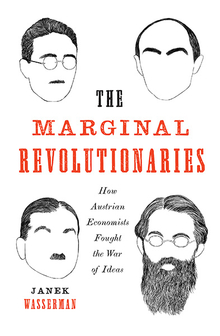Carl Menger (1840-1921) is acknowledged as the founder of the Austrian School of Economics (Österreichische Schule der Nationalökonomie). Now that I have dedicated more or less a quarter of a century to present this major author (yet my biography is the first ever in the French language, see F ⑴[efn_note]References work as follows: they are given according to the numbered list of works in the references section at the end of this paper. What is noted W plus number lists works (and Werke) in English and in German, while F is for publications in French and J for those in Japanese. Here F ⑴ means my biography of Menger in French at CNRS publishing house, while for instance W ⑸ is my entry on Menger in the Handbook of the History of Economic Analysis edited by Gilbert Faccarello and Heinz Kurz (Cheltenham: Edward Elgar, 2017).[/efn_note]) edit, translate (into French and into English, especially his Principles of 1871 ‒ Grundsätze der Volkswirtschaftslehre ‒ and Investigations of 1883 ‒ Untersuchungen über die Methode der Socialwissenschaften und der politischen Oekonomie insbesondere ‒for the first time ever into French), as well as explore his archives (Nachlass), comment and annotate on them, a summary of my works upon his doctrine has kindly been requested from me by some colleagues and revered masters. Answering their request, here are a few pages that may serve well as a guide to what has been published in French about the Viennese master, and as results from my more international writings.
Continue reading “A Summary of My Works on the Doctrine of Carl Menger”2020 Joseph J. Spengler Best Book Prize is awarded to “The Marginal Revolutionaries: How Austrian Economists Fought the War of Ideas”
The 2020 Joseph J. Spengler Best Book Prize is awarded to The Marginal Revolutionaries: How Austrian Economists Fought the War of Ideas, by Janek Wasserman by the committee of Paul Dudenhefer, Manuela Mosca, and Verena Halsmayer.

The Austrian school has “transformed our world,” Wasserman claims, and his book successfully supports his contention by providing a lively account of this enigmatic community of economists. Wasserman traces the origins, evolution, and, above all, the social activities and thought style of this multigenerational group from the Austro-Hungarian Empire to the United States, where most present-day members of the school can be found.
More than focusing on the ideas of the Austrians, Wasserman concentrates on the activities of the group—their seminars, their policy involvement, their institution building. He conveys the tremendous and tenacious goings-on of three generations of economists (and counting) who felt connected to each other through their haut bourgeois Austrian roots and who at every turn sought a vigorous engagement with the world as that world went through imperial dissolution, two world wars, and a global economic depression, along with the establishment, and eventual dissolution, of socialist states.
Continue reading “2020 Joseph J. Spengler Best Book Prize is awarded to “The Marginal Revolutionaries: How Austrian Economists Fought the War of Ideas””A link to our experimental Wiki
This is just a link to our future wiki: Carl Menger Wiki